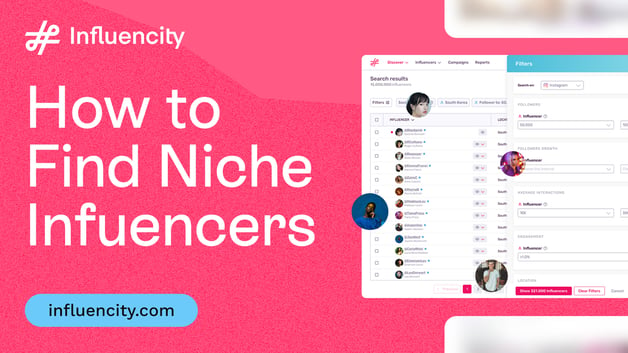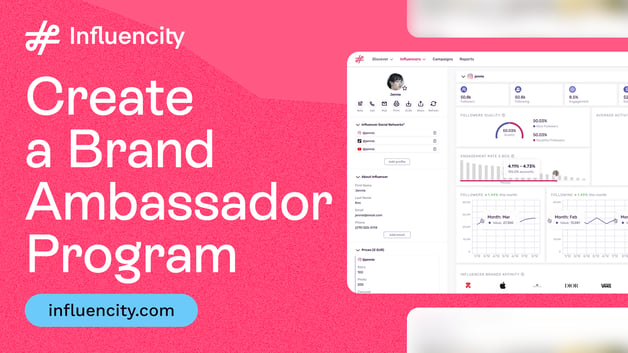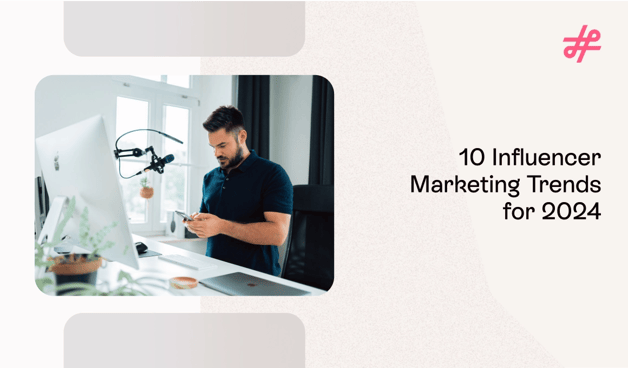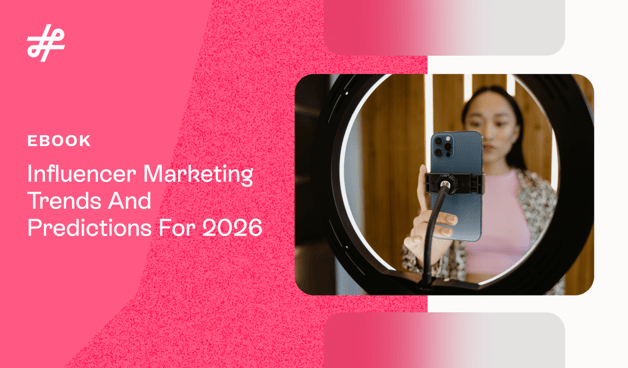Influencer Marketing
Social Media Influencers: A Complete Guide for 2025
Influencer Marketing
Social media influencers have become a powerful force in the world of marketing and brand promotion. With the right collaborations, you can reach your target audience, build brand trust and credibility, and drive engagement.
So, what’s their secret? Why should you include social media influencers in your marketing strategy? And how can you harness this potential as we step into 2025?
In today’s post, we are going to explore the basics of social media influencers, explaining why they are so effective and highlighting the value that they can bring to your marketing efforts in 2025.
An Introduction to Influencer Marketing
Influencer marketing is a strategy where brands collaborate with social media content creators to promote products, services, or campaigns. This form of marketing leverages an influencer's credibility, audience, and ability to sway their followers' purchasing decisions, effectively bridging the gap between a brand and its target demographic.
Over time, influencer marketing has evolved from celebrity endorsements to include a spectrum of influencers, from mega-influencers with millions of followers to nano-influencers who have a smaller, but highly engaged, audience. This evolution is largely due to the rise of social media platforms, which have democratized content creation and allowed niche personalities to build significant followings around specific interests.
Recent statistics show that the global influencer marketing market was valued at $21.1 billion in 2023, and it is expected to continue growing at an accelerated pace. It is projected to reach $25 billion by 2025, according to Statista. A report by Forbes indicates that 89% of marketers believe the ROI (Return on Investment) from influencer marketing campaigns is comparable or superior to other digital marketing strategies. Moreover, a study by Influencer Marketing Hub reveals that 67% of marketers plan to increase their budgets for influencer marketing in 2025, demonstrating the continued growth of this marketing approach.
Different types of influencer marketing campaigns include:
- Sponsored content: Influencers create content that features the brand’s product or service.
- Product reviews: Influencers provide their honest review of a product or service to their audience.
- Brand ambassador programs: Long-term partnerships where influencers continuously endorse a brand.
- Affiliate marketing: Influencers earn a commission for every sale made through a link they share.
- Social media takeovers: Influencers take over a brand’s social media account for a set period (often a day) to engage with the brand’s audience.
- Giveaways and contests: Influencers host contests or giveaways in collaboration with the brand to increase engagement and visibility.
Emerging trends show that nano-influencers and micro-influencers are gaining traction as brands seek higher levels of authenticity and engagement. According to Statista, 80% of brands collaborating with micro-influencers report a positive ROI from their campaigns. Additionally, the focus on sustainability and social responsibility is growing. Consumers increasingly value the ethics and sustainability of the brands they support, and influencer campaigns promoting eco-friendly products or social initiatives tend to generate a more positive response.
An example of a successful influencer marketing campaign is Daniel Wellington’s strategy of partnering with a wide range of influencers across different tiers to promote their watches.Daniel Wellington achieved substantial visibility and impressive sales by equipping influencers with unique discount codes for their followers. This strategy allowed for precise tracking of campaign effectiveness, demonstrating the powerful potential of well-executed influencer marketing.
Understanding Social Media Influencers
Social media influencers are individuals who have garnered a substantial following on various digital platforms through their engaging content creation and ability to connect authentically with their audience. Platforms like Instagram, YouTube, TikTok, and Facebook serve as their main stages where they influence their followers' opinions, behaviors, and purchasing decisions. This influence makes them valuable partners for brands looking to promote their products or services in a way that feels genuine and trustworthy.
These influencers often focus on specific niches - ranging from beauty, fashion, and fitness to travel, gaming, and lifestyle - allowing them to tailor their content to the interests and needs of their audience. This specialization not only enhances their credibility and authority in a particular domain but also ensures that their endorsements resonate more deeply with their followers.
The power of social media influencers lies in their authenticity and the personal connection they cultivate with their followers. Through storytelling, showcasing their expertise, and sharing insights into their daily lives, influencers build a rapport with their audience that traditional advertising channels struggle to achieve. This connection fosters a level of trust and credibility, making their recommendations and endorsements significantly more influential.
A 2023 report by Morning Consult highlights that 72% of Gen Z and 66% of Millennials follow at least one influencer on social media. In the same report, nearly half of Millennials said they trust influencer product recommendations more than those from traditional celebrities, underlining the power of peer-like endorsements.
In addition, the diversification of platforms has led to the emergence of influencers on newer channels such as Twitch, LinkedIn, and BeReal. This shows that digital influence is no longer limited to traditional sectors like beauty or fashion—it now extends to fields such as technology, education, sustainability, and personal finance. This expansion is redefining what it means to be an influencer in today’s digital economy.
Examples of Well-Known Social Media Influencers:
- Instagram: Huda Kattan (@hudabeauty) – Founder of Huda Beauty, Huda Kattan has over 54 million followers on Instagram. She shares makeup tutorials, beauty tips, and product launches, collaborating with leading cosmetic brands and using her platform to promote her own highly successful beauty line.
- TikTok: Khaby Lame (@khaby.lame) – With his humorous and universally understandable videos, Khaby has amassed over 162 million followers, becoming one of the most-followed creators on TikTok. His collaborations include brands like Hugo Boss and Xbox.
- Twitch: Pokimane (@pokimane) – A gaming and lifestyle streamer with over 9 million followers on Twitch, Pokimane has partnered with brands like HyperX and NZXT to create authentic and engaging campaigns.
Partnering with social media influencers, helps brands leverage this trust to reach highly engaged and targeted audiences. This collaboration can lead to increased brand awareness, customer loyalty, and ultimately, a higher return on investment for their marketing campaigns. In essence, social media influencers offer brands an effective platform to communicate their messages in an authentic and impactful manner.
The Perfect Match: Social Media and Influencers
Social media and influencers go together like peanut butter and jelly, creating a unique space where genuine connections can flourish. Influencers use platforms like Instagram, TikTok, and YouTube to build real relationships with their followers, sharing their lives, passions, and experiences. Have you ever felt like you truly know an influencer even though you’ve never met them in person? That’s the magic of authentic connection. This personal touch makes their recommendations feel authentic and relatable, which is something traditional advertising often struggles to achieve.
Consumers today won’t settle for cold, impersonal advertising anymore. With consumers becoming more discerning, the demand for authenticity is higher than ever; in fact, the 2023 Edelman Trust Barometer highlights that consumers are seeking ongoing engagement with brands beyond the point of purchase, with trust playing a crucial role in this dynamic.
What’s great about influencers is their variety. Whether you’re looking for a fashion influencer with a massive following or a niche fitness content creator with a dedicated fanbase, there’s an influencer out there for every brand. Have you ever considered partnering with a micro-influencer who genuinely aligns with your brand? Sometimes, less really is more. This means you can find someone who truly resonates with your target audience, making your marketing efforts more effective.
Additionally, influencers have a knack for creating engaging content that captures attention and encourages interaction. Their followers trust them, and that trust translates into influence. At the end of the day, it’s all about trust and community. Thanks to these partnerships with influencers, brands can tap into this powerful dynamic, reaching new audiences in a way that feels personal and engaging. The key is building relationships, not just campaigns. In short, the partnership between social media and influencers is all about connecting people with brands in a meaningful way.
The Impact of Social Media Platforms on Influencer Marketing
Social media platforms are at the heart of influencer marketing, serving as the playground where influencers connect with their audiences and brands make their mark. Each platform has its own vibe and unique features that cater to different types of content and audiences. For example, Instagram is all about eye-catching visuals and lifestyle stories, making it a go-to for beauty and fashion influencers. On the other hand, TikTok thrives on fun, short videos that can go viral in no time, attracting a younger crowd and creating exciting trends.
Have you noticed how just one TikTok can make a product sell out overnight? Brands like CeraVe and The Ordinary saw massive spikes in global demand after being featured by content creators—often in unpaid, organic posts. For instance, when skincare influencer @hyram started praising CeraVe’s Hydrating Cleanser, the brand went viral, leading to stock shortages in multiple countries. That shows how authentic content can often have more impact than traditional advertising.
@hyram #AD: You're Cleansing Wrong 😬 w/ @cerave 🙏 #skincarebyhyram #cleanseyourskinweek ♬ original sound - Hyram
These platforms also come equipped with tools that help both brands and influencers see how well their content is performing. They provide insights into engagement rates, reach, and audience demographics, which is super helpful for tweaking campaigns to make them even more effective. Features like hashtags, reels, and live streams encourage creativity, allowing influencers to create content that not only captivates their followers but also boosts visibility for brands.
And what’s even more interesting is how brands have learned to listen. It’s no longer just about launching products but co-creating them with the community. Have you ever taken part in an Instagram poll where a brand asks you to choose the next product, color, or scent? That kind of interaction builds a sense of ownership and loyalty.
@debenhams Career advice: women to women ✍🏼 from some of the faces behind Debenhams #IWD2024 #internationalwomensday #officetok ♬ original sound - Debenhams
What really sets social media apart is its ability to foster community. Influencers can interact with their followers in real time through comments, Q&A sessions, and polls, building a sense of connection and trust. When followers feel like they’re part of a community, they’re more likely to take action based on an influencer’s recommendations. In a nutshell, social media platforms don’t just support influencer marketing; they make it come alive, creating a space where authentic relationships and engaging stories can flourish.
Different Types of Influencer Marketing Campaigns for Social Media Success
When it comes to influencer marketing, there’s a whole world of campaign types to choose from, each providing a unique and exciting way to engage with your audience. Whether you want to tell a story, share a product, or spark a conversation, the right approach can really make your brand’s message stand out and resonate with people. Taking the time to find the perfect fit for your brand can make all the difference in how effectively your message lands.
Here are some popular types of influencer marketing campaigns that can help you shine on social media:
- Sponsored content. This is when influencers create posts featuring your product or service. They present it in a way that feels natural and authentic, almost like a friend recommending something they genuinely love. However, it’s important to note that by law, sponsored content must be clearly disclosed as a paid partnership or advertisement to comply with advertising standards. This transparency not only ensures compliance but also helps maintain trust with the audience.
@aamnaadel ad Decoding the VIRAL La Roche Posay EFFACLAR skincare range @La Roche-Posay #dermatologist #effaclar #skincare #skincareroutine #skincareproducts #spots #blemishproneskin #blemishes ♬ original sound - Dr Adel | Dermatologist
- Product reviews. When influencers share their honest thoughts about your product, it gives their followers the confidence to make informed decisions. This honesty builds trust and shows that you value transparency.
@ling.kt Wasnt expecting that! @r.e.m. beauty #lipoil #remlipoil #rembeauty #arianagrande #rembeautyreview #honestreview ♬ original sound - Ling.KT
- Brand ambassador programs. These are longer-term partnerships with influencers who regularly promote your brand. This consistency helps create loyalty among their followers and keeps your brand fresh in their minds.
- Affiliate marketing. In this setup, influencers earn a commission for every sale made through a special link they share. It encourages them to promote your products more passionately since their success directly impacts their earnings.
@syennafontana discount code: SYENNA21 @YesStyleInfluencers #YesStyle #YesStyleInfluencers #YesStyleBeautyReview #prunboxing ♬ original sound - syenna
- Social media takeovers. This is a fun way to shake things up, where influencers take control of your brand’s social media accounts for a day or so. They share their unique perspective and engage directly with your audience, making it feel more personal.
- Giveaways and contests. Influencers can host exciting giveaways that encourage their followers to engage with your brand. It’s a fun way to boost interaction and expand your reach while creating buzz around your products.
@christifritz GOOD LUCK! Make sure you watch the whole thing so you know what to do!!! ILY ALL SM!!💗✨ #makeup #skincare #giveaway #haul #ulta #ultabeautyworld #makeuphaul #skincareproducts #viralproducts #makeupgiveaway #ulta #sephora #beauty #beautyproducts #preppy #fyp ♬ original sound - Christi Fritz
Types of Social Media Influencers: Which Ones Should You Partner With?
Social media influencers can be categorized based on their follower count and the niches they specialize in, offering brands a spectrum of partnership opportunities tailored to diverse marketing goals. These categories include nano, micro, macro, and mega influencers, each possessing unique attributes and advantages.

The type of influencer you choose to partner with will depend on several factors, including who your target audience is, how well the influencer's values align with your brand, the kind of content they create, their engagement levels, and what you hope to achieve with the collaboration. Budget is also a major factor, as it will determine which influencers you can realistically approach and whether you can afford ongoing partnerships or just one-off collaborations.
Let’s explore these different types of social media influencers in a bit more detail to help you decide who best to collaborate with on your 2025 campaigns.
Nano-Influencers
Nano-influencers are social media personalities who typically possess a follower count of fewer than 10,000 individuals. Despite their smaller audience, they are highly valued for their ability to maintain elevated engagement rates compared to influencers with larger followings. This high level of engagement is often attributed to their specialized knowledge and the close relationships they foster within their niche communities, which allows them to interact more genuinely and personally. This often makes their endorsements come across as trusted advice from a friend rather than a conventional advertisement. Examples include Chelsi Gregory, Maya Taylor and Rahul Bairagi.
Due to these qualities, nano-influencers are particularly effective for targeted marketing efforts, making them an excellent choice for brands looking to reach specific demographics or promote products within hyper-local or highly specialized markets. Their authentic approach helps brands create a credible and relatable image that can significantly influence consumer behavior in their respective niches.
Micro-Influencers
Micro-influencers are digital content creators who have amassed a following of between 10,000 and 100,000 on social media platforms. They effectively balance having a broad reach with maintaining high engagement levels, making them extremely appealing to brands that aim to target specific demographics. Typically recognized as authoritative voices in their respective niches—ranging from beauty and fitness to gaming and lifestyle—micro-influencers build trust and credibility with their audiences through specialized knowledge and consistent content delivery. In addition, their size allows them to maintain a personal connection with their audience, which enhances their influence. This personal touch ensures that their recommendations and endorsements are seen as authentic and trustworthy, similar to advice from a knowledgeable friend. Examples include Alyssa Lynch, Sancheir Austin and Tom Fahndrich.
Brands find micro-influencers particularly valuable for their ability to generate genuine interest and direct consumer interactions within specific fields, often leading to higher conversion rates compared to broader marketing campaigns. Their targeted influence makes them ideal partners for promoting products or services that require a nuanced understanding of consumer preferences within a particular market segment.
Macro-Influencers
Macro-influencers are influential social media figures who boast a substantial following, typically ranging from 100,000 to 1 million followers across platforms such as Instagram, YouTube, and Twitter. These influencers are often well-established personalities in various fields, including blogging and video content creation, or celebrities within specific domains like fashion, technology, or entertainment. Their significant follower base allows them to offer a broad reach, making them highly desirable for brands that are looking to enhance visibility and brand awareness on a larger scale. Examples include Marie Joy Jurado, Rabah and Olya Hill.
@tiff.n.joy The simple Tiktok days where we didn't know how to transition. lol btw its "DANCE like a shining star" idk what I said. Piff?? like wth is piff?? 😅 #onthisday #tiffnjoy ♬ original sound - ❣️Joy & Tiffany❣️
Due to their established presence and credibility, macro-influencers can effectively draw attention to products or services through their endorsements, sponsored posts, or collaborative content. Their ability to reach a vast audience facilitates wider brand recognition and trust. This level of influence is particularly beneficial for companies aiming to penetrate the market quickly or reinforce their position within the industry. By partnering with macro-influencers, brands can leverage the influencers' authority and popularity to amplify their marketing messages and achieve a more substantial impact.
Mega-Influencers
Mega-influencers are the titans of the social media world, each boasting over 1 million followers. This elite group typically includes high-profile celebrities and major internet sensations whose expansive reach extends across global audiences. Their significant online presence provides unparalleled visibility, making them ideal partners for large-scale marketing campaigns aimed at a mass-market audience. Examples include Kim Kardashian, Addison Rae and Chiara Ferragni.
Although mega-influencers can offer immense reach, they often exhibit lower engagement rates compared to nano, micro, or macro-influencers. This phenomenon is usually due to the sheer volume of their followers, which can dilute the personal touch that smaller influencers maintain. Despite this, the broad and diverse audience base of mega-influencers is extremely valuable for brands seeking to increase awareness quickly and on a large scale. Their ability to influence trends and consumer behaviors simply by associating with a product or brand underscores their pivotal role in modern digital marketing strategies.
Social Media Influencers Categorized by Role and Niche
Aside from size, there are also different types of social media influencers, such as content creators and brand ambassadors, who bring their own distinct value to partnerships. Content creators are known for their ability to produce engaging and original content that resonates with their audience, making them ideal for creative campaigns. Brand ambassadors, on the other hand, often have a long-term relationship with a brand and consistently endorse products or services across their platforms, building trust and loyalty among their followers.
Moreover, each type of influencer works within various niches, attracting audiences with specific interests. From fashion and beauty influencers who dictate the latest trends, to travel influencers who inspire wanderlust, and tech influencers who provide the latest gadget reviews, these segmented niches allow brands to tailor their marketing strategies to reach highly engaged and relevant audiences.
When it comes to the most dominant sectors for influencer marketing, beauty, fashion, and lifestyle rank among the top three. These industries benefit from the visual nature of platforms like Instagram and TikTok, where influencers showcase products, provide tutorials, and share authentic personal experiences, driving high levels of engagement and consumer trust. For example, James Charles, a beauty influencer and makeup artist, has built a massive following by sharing makeup tutorials, reviews, and his own product collaborations.
The Main Benefits of Influencer Marketing on Social Media
There are a number of benefits that you can harness by including social media influencers in your brand’s marketing strategy in 2025.
This includes:
- Reaching your target market and enhancing brand visibility.
- Building brand trust and credibility and improving your reputation.
- Driving engagement and converting your target audience into paying customers.
Let’s explore these benefits in a bit more detail.
Effective Ways to Reach Your Target Market
By collaborating with social media influencers whose followers align with your target market, you can effectively reach potential customers who may have otherwise been difficult to engage. Think of an influencer's content as a bridge that connects your brand with their audience in an authentic and impactful way.
Can you imagine speaking directly to the people who actually want to hear from you? That’s the power of a well-thought-out influencer partnership.
Moreover, influencers often have a deep understanding of their audience's preferences, needs, and aspirations. They possess valuable insights into their followers' demographics, interests, and purchasing behaviors. Leveraging this knowledge can help you tailor your brand messaging, products, or services to your identified target audience, maximizing the impact and resonance of your marketing campaigns and helping you influence consumer behavior.
Tapping into this knowledge is like having a mini market research agency built into every influencer profile. Many influencers even share detailed post-performance data, helping you make decisions based on real metrics—not guesses.
For example, according to a 2024 HubSpot report, 67% of marketers reported a higher ROI from campaigns with micro-influencers compared to traditional strategies. What’s stopping you from testing this too?
What’s more, if you include a social media takeover in your marketing strategy (where an influencer temporarily takes control of your brand's social media accounts), you can further amplify your brand's target market reach.
Takeovers don’t just add novelty; they also build closeness. When an influencer steps into your brand’s voice, your audience gets a fresh, humanized perspective.
This approach also brings a fresh and exciting element to your own followers. It allows for authentic storytelling, behind-the-scenes glimpses, and interactive experiences that foster deeper connections with your target market.
Have you thought about doing one with a local influencer or someone from your specific niche? Sometimes, being relatable beats going viral.
Builds Brand Trust & Credibility
Building brand trust and credibility is crucial for establishing a positive reputation and fostering long-term relationships with customers. Social media influencers play a significant role in this process by lending their credibility and authenticity to the brands they collaborate with.
But why are influencers so effective at building trust in the first place?
So, why are social media influencers so good at generating brand trust?
Essentially, when influencers promote a brand or endorse its products, their audience perceives it as a trusted recommendation.
Because it doesn’t feel like an ad—it feels like advice from someone you actually trust.
This is because successful social media influencers have nurtured relationships with their followers based on transparency, relatability, and expertise. And that matters. Audiences can tell when a partnership feels forced versus when an influencer genuinely believes in what they're sharing. Authenticity isn’t something you can fake. As a result, their endorsements hold substantial weight and can positively impact brand perception.
In fact, studies like the State of Influencer Marketing report from Influencer Marketing Hub show that 82% of consumers trust influencer recommendations more than traditional advertisements. Isn’t that powerful?
What’s more, social media influencers have the ability to humanize a brand and make it more relatable to their audience. Seeing a real person use a product in their daily life creates a stronger emotional connection than any polished brand message ever could. Through their authentic and genuine interactions, influencers create a sense of connection and familiarity. Their followers see them as real people who use and genuinely enjoy the products or services they endorse.
Isn’t that what every brand wants—to become a meaningful part of someone’s life, not just their shopping list?
This level of authenticity resonates with consumers and helps to build brand trust and credibility.
Drives Engagement
Finally, social media influencers can help you boost audience participation and drive engagement. In fact, influencer-generated posts receive an average 8x more engagement than branded posts
Did you know that influencer-created content generates up to 8 times more engagement than brand content? That’s no accident.
There are a few reasons for this. Firstly, social media influencers have a loyal and engaged following. Their audience actively seeks out their content, values their opinions, and engages with their posts. The key lies in real connection. Their followers don’t just “see” their content—they look forward to it, comment on it, and share it. They're emotionally invested. As a result, when influencers collaborate with brands, their followers are more likely to participate in brand-related activities, such as liking, commenting, and sharing posts, participating in contests or giveaways, or even creating user-generated content.
A well-executed collaboration can spark a wave of user-generated content that amplifies your message organically. Can you imagine the potential reach that brings?
Secondly, influencers often have a knack for creating compelling and shareable content. They know how to capture attention, evoke emotions, and spark conversations. It’s not just about having a nice camera or filters. Many influencers are seasoned storytellers with a strong sense of visual narrative—they know how to move people. By including social media influencers in your marketing strategy, you can tap into their creativity and storytelling skills, which can lead to increased engagement from your target audience.
Finally, influencers have a natural ability to drive conversations and generate buzz. When they endorse a product or promote a campaign, their followers take notice and are more inclined to join the discussion. Their words carry weight. They have the power to turn a single post into a collective conversation. By leveraging the influencer's skills and natural abilities in this way, brands can foster meaningful engagement and, ultimately, drive business growth.
And remember: engagement isn’t just about likes—it’s about visibility, community, and ultimately, conversions.
The Rise and Impact of Influencer Marketing in Social Media Campaigns
The rise of influencers has reshaped the way social media works, turning these platforms into powerful marketing and communication tools that bridge the gap between brands and consumers. This shift began subtly over a decade ago, as users naturally gravitated towards charismatic individuals who offered unique perspectives and lifestyle insights. As platforms like Instagram, YouTube, and Twitter matured, so did the art of influence, transforming a casual hobby for many into a professional endeavour with significant financial stakes.
The rise of social media influencers is intrinsically linked to the evolution of digital marketing. Traditional advertising methods began to wane in effectiveness as audiences sought authenticity and personal connection, attributes that influencers inherently possess. This has prompted even the largest brands to realign their marketing strategies to include influencers as central figures in their campaigns. So much so, in fact, that 66% of brands now claim that creator content drives a higher return on investment (ROI) than traditional digital advertising.
Social media platforms have also adapted to this rise, introducing features like shoppable posts, stories, and reels. These tools help social media influencers to monetize their influence more directly and visibly than ever before. Consequently, the influencer economy has not only grown in size but also become more sophisticated, with detailed analytics and strategic collaborations becoming the norm. This symbiotic growth between influencers and platforms underscores a significant cultural shift in how content is created, consumed, and monetized, suggesting that the influence of social media personalities is likely to continue growing in 2025 and for many more years to come.
Coca-Cola: From Classic Advertising to Influencer Marketing
Coca-Cola is a great example of how a global brand can evolve its strategy without losing its identity. While the company still invests in traditional advertising—like TV spots and sponsorships at major events—it now focuses much more on dynamic, personalized, and consumer-driven marketing, powered by influencer collaborations.
Coca-Cola traditionally relied on highly produced campaigns: commercials for TV or YouTube, often with emotional and universal themes. These campaigns had strong visibility, but offered little opportunity for direct audience interaction. Consumers watched, but didn’t participate.
Today, Coca-Cola still runs traditional campaigns—but now, influencers and content creators play a central role in its digital strategy. This shift enables the brand to tell more authentic, relatable stories that connect deeply with specific audiences.
In 2025, Coca-Cola is giving a fresh twist to one of its most iconic campaigns: “Share a Coke.” But this time, it’s not just about spotting your name on a bottle—it’s about creating a full, personalized experience that speaks to a generation craving authenticity and digital connection.
Starting in April, across more than 120 countries, consumers will be able to find bottles and cans with personalized names, but the magic doesn’t stop there. With the Coca-Cola app and new on-pack QR codes, users can design custom labels, create their own “Share a Coke” videos, and instantly share memories through the new “Memory Maker” tool.
To bring the campaign to life in a more meaningful way, Coca-Cola is teaming up with influencers around the world and rolling out real-world activations like “Share a Meal” bundles at McDonald’s, along with eye-catching out-of-home advertising in key cities.
Rather than simply reviving an old favorite, “Share a Coke” is evolving, becoming more interactive, more personal, and more connected to how we live and share today.
Tags:
Social Media Influencers






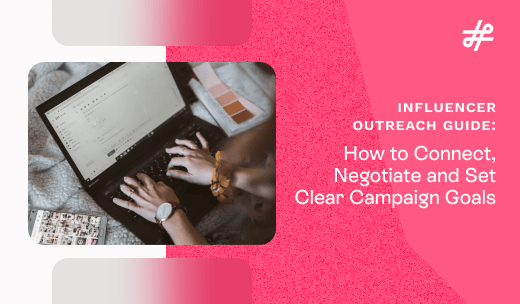
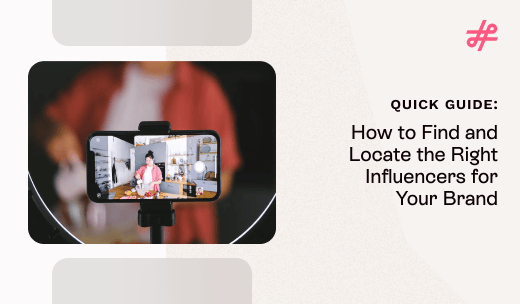


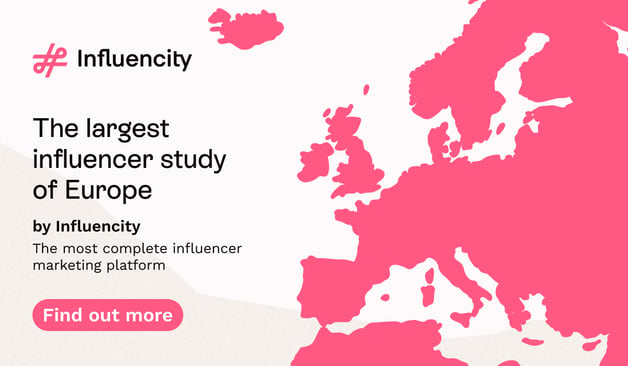




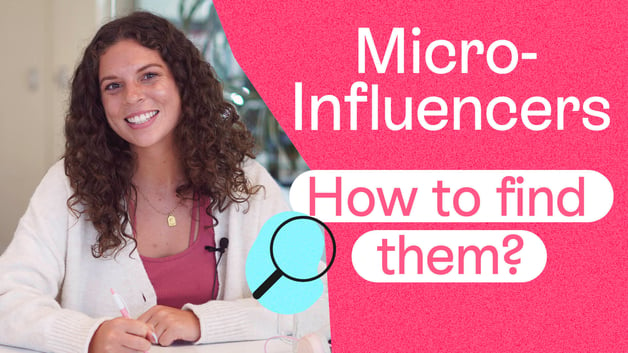


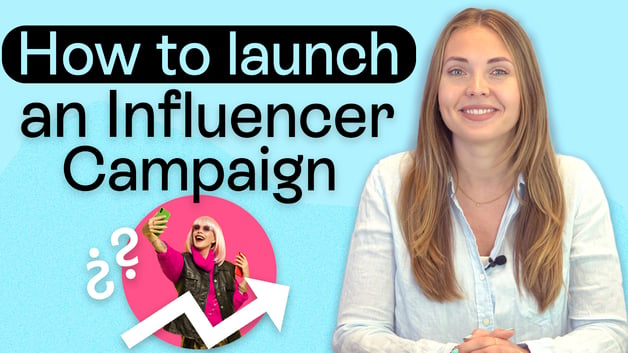

%20and%20How%20Can%20They%20Benefit%20Your%20Brand%20article.jpg?length=628&name=What%20Are%20Key%20Opinion%20Leaders%20(KOL)%20and%20How%20Can%20They%20Benefit%20Your%20Brand%20article.jpg)
